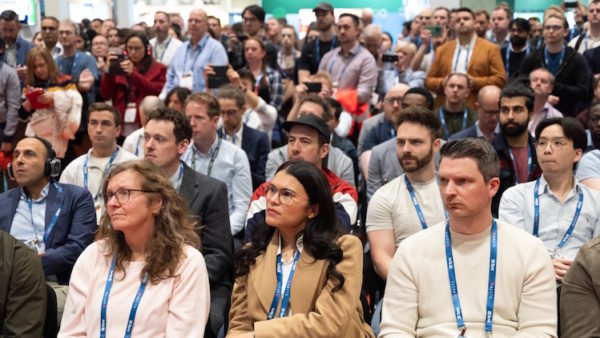
As the end of the year nears, take the time to catch up with some of the best BIM and digital construction stories that you might have missed in 2023. Here are the editor’s picks.
Ian Gordon’s intro to his rumination on data’s role in society sounds like the pitch for an apocalyptic movie: “The world is on fire. Our governments are broke. Disinformation is rife. At the intersections of these challenges: data and the built environment.”
But that final sentence suggests a hero may be about to emerge…
Gordon’s piece acts as something of a moral compass for the construction industry and the wider built environment.
It may sound depressing, but there’s hope lining Gordon’s thoughts – and we all need hope.
As society increasingly embraces diversity in all its aspects, Denise Chevin’s interview with Maber Architects delivered insight into the practice’s use of VR and gaming software to help simulate the types of uncomfortable sensory experiences neurodivergent people and people with neurodegenerative conditions are exposed to in today’s buildings.
Maber’s Josh Chrystal said: “By combining our technical expertise with engaging and interactive digital design guidance, we hope to empower everyone involved in the design process to make informed decisions around neurodiverse design solutions.”
Are you using consumer messaging apps within project teams? The answer is probably a thumbs up emoji. But have you considered the impact of their use in the age of the golden thread?
SymTerra chief executive and co-founder John Ryan warned: “Using consumer messaging apps to keep abreast of project updates, manage critical works, or organise works does present potential breaches across a number of critical policy and regulatory areas, including the DPA 2018, GDPR, and the Building Safety Act.
“In the case of ISO 9001:2105, breaches can impact your organisation’s quality management systems, cyber security and other IT policies.”
Former Osborne chief executive Andy Steele wrote a compelling piece challenging construction to learn from Billy Beane, general manager of the Oakland Athletics baseball team.
Beane revolutionised the way baseball teams were managed by focusing on objective data and advanced statistics. He was also made famous outside baseball circles thanks to the 2011 movie Moneyball, starring Brad Pitt.
Steele wrote: “As construction leaders, we can draw inspiration from Beane’s innovative approach to management by looking beyond traditional methods of measuring outcomes and looking deeper into the underlying factors that contribute to project success.”
If we’re going to get to grips with sustainability and meet net-zero targets, we need to know where we are, and establish a base to work from.
UCL’s work to deliver the National Buildings Database for the Department for Energy Security and Net Zero could be that base.
The National Buildings Database – the carbon Domesday Book of the headline – will mark a “step-change in the evidence available for analysis of decarbonisation across the building stock”, according to DESNZ.
BIMplus spoke to Paul Ruyssevelt, professor of energy and building performance at UCL, who is leading the 30-strong project team, to find out more.
Don’t miss out on BIM and digital construction news: sign up to receive the BIMplus newsletter.














